Ancien député Vert du Val-d’Oise, puis de Paris entre 1997 et 2011, Yves Cochet fut ministre de l’Aménagement du territoire et de l’Environnement dans le gouvernement de cohabitation du socialiste Lionel Jospin de 2001 à 2002. Il s’est maintenant retiré de la vie politicienne. Il continue néanmoins à participer au débat public.
 Son nouvel ouvrage, Devant l’effondrement, ne peut que déplaire aux hiérarques d’Europe Écologie – Les Verts (EE-LV) et à leurs potentiels électeurs bo-bo prêt à tout pour sombrer une nouvelle fois dans l’hédonisme « éthique ». Avec cet « essai de collapsologie », Yves Cochet « avoue avoir rédigé cet ouvrage d’une main tremblante (p. 120) ». Son propos sciemment pessimiste contrarie les desseins merveilleux d’EE – LV au moment où leurs homologues autrichiens et bientôt allemands gouvernent et vont gouverner en partenariat avec les conservateurs chrétiens-démocrates. Il s’agace du réformisme radieux qui émane de son parti. « Collés à l’actualité, obsédés par la rivalité pour les places – comme dans les autres partis, en somme -, la quasi-totalité des animateurs Verts se bornent à décliner les clichés rassurants du développement durable, aujourd’hui renommé “ Green New Deal ” ou “ transition écologique ” (p. 221). »
Son nouvel ouvrage, Devant l’effondrement, ne peut que déplaire aux hiérarques d’Europe Écologie – Les Verts (EE-LV) et à leurs potentiels électeurs bo-bo prêt à tout pour sombrer une nouvelle fois dans l’hédonisme « éthique ». Avec cet « essai de collapsologie », Yves Cochet « avoue avoir rédigé cet ouvrage d’une main tremblante (p. 120) ». Son propos sciemment pessimiste contrarie les desseins merveilleux d’EE – LV au moment où leurs homologues autrichiens et bientôt allemands gouvernent et vont gouverner en partenariat avec les conservateurs chrétiens-démocrates. Il s’agace du réformisme radieux qui émane de son parti. « Collés à l’actualité, obsédés par la rivalité pour les places – comme dans les autres partis, en somme -, la quasi-totalité des animateurs Verts se bornent à décliner les clichés rassurants du développement durable, aujourd’hui renommé “ Green New Deal ” ou “ transition écologique ” (p. 221). »
Catastrophiste assumé
En effet, à la différence de la nouvelle pasionaria de la « Planète » et du « Climat », Greta Thunberg, l’auteur qui avait déjà publié en 2005 un Apocalypse Pétrole n’est pas alarmiste. Bien qu’il ne croit pas au scénario du film de Richard Fleischer, Soleil vert (1974), Yves Cochet présente son catastrophisme. « Au contraire de mes camarades de parti, j’aspire depuis une quinzaine d’années à une refondation idéologique catastrophiste de l’écologie politique dans le cadre de l’Anthropocène (p. 222). »
Il s’en prend à « une partie des activistes écologistes [qui] considèrent encore que le combat principal se nomme anticapitalisme et que, conséquemment, la disparition espérée de ce système-là suffirait à résoudre la plupart des problèmes sociaux et environnementaux (p. 9) ». Il trouve ce combat d’arrière-garde et même vaine. Il écrit, provocateur : « Quand bien même les 450 réacteurs nucléaires en service dans le monde seraient tous autogérés par des coopératives ouvrières à but non lucratif, cela n’enlèverait strictement rien à l’aberration politique et environnementale que constituent de tels outils de production massive d’électricité (pp. 9 – 10). » Rejetant la « croissance verte », le « développement durable » et l’embourgeoisement de l’écologie, Yves Cochet veut « décoloniser l’imaginaire contemporain sur toutes ses formes et construire une rationalité et une imagination nouvelles afin de penser l’impensable (p. 14) ». Ainsi prône-t-il implicitement le retour du Mythos aux dépens du Logos. Bien qu’il ne le cite pas, on devine l’influence prégnante du « pape » français de la décroissance, Serge Latouche.
L’auteur s’élève contre le modèle productiviste et « les mythologies populaires du progrès (p. 44) ». Ce tenant de l’alliance entre les Verts et le PS apporte une analyse sur le productivisme que ne renieraient pas ses frères ennemis, les écologistes indépendants. « Le productivisme n’est pas spécifiquement libéral. L’URSS d’hier était aussi productiviste que les États-Unis. La Chine communiste d’aujourd’hui l’est autant que le Japon. La soumission du politique à l’économique est inhérente aux doctrines libérale et marxiste (p. 49). » Il y inclut le transhumanisme et « la volonté de refabrication du monde (p. 51) ». Il assume volontiers contester les projets spatiaux vers Mars ainsi que l’ambition prométhéenne de terraformer la planète rouge. Par productivisme, il entend « toute structure sociale recherchant la production et la productivité maximales sans égard pour leur contenu ou leur environnement social, culturel ou environnemental (p. 50) ».
Il veut faire comprendre au lecteur l’urgente nécessité de s’extraire du système productiviste s’il veut avoir une (modeste) chance de survivre. Il condamne par conséquent toutes les démarches de repeindre en vert ce même productivisme. Yves Cochet ne croit pas possible que l’actuelle société moderne puisse se dégager de l’emprise socio-économique du pétrole et des énergies fossiles. « Le remplacement éventuel de la filière pétrolière par une autre de même puissance et de même volume exigerait plusieurs décennies d’investissements considérables dans les infrastructures, alors que le peak oil est imminent (pp. 82 – 83). » Il dénonce la construction de nouvelles infrastructures routières et voit dans l’hydrogène, le carburant de déplacement de demain, un leurre. « Les constructeurs prétendent pouvoir y parvenir grâce à l’arrivée des moteurs électriques, hybrides ou à hydrogène. Selon nous, cet objectif est irrationnel (p. 141). » Sans citer Guillaume Pitron et son excellent ouvrage sur La guerre des métaux rares paru en 2018 chez le même éditeur, Yves Cochet voit la « transition écologique » comme une belle escroquerie intellectuelle. « En 2050, zéro énergie fossile, et même zéro nucléaire pour les plus radicaux, mais nous roulerons électrique, renouvelable et “ smart ” – avec l’intelligence artificielle et le monde numérique qui croissent. En voiture électrique, en bus, en tramway, en train et en vélo. Autrement dit, il y aura de l’électricité en 2050 (pp. 200 – 201). »

Le défi des naissances
L’auteur soutient une décroissance globale. Il revient sur l’épineuse question démographique. Il y a plus d’un an, dans un entretien accordé à L’Obs (du 3 janvier 2019), il proposait « de renverser notre politique d’incitation à la natalité, en inversant la logique des allocations familiales. Plus vous avez d’enfants, plus vos allocations diminuent jusqu’à disparaître à partir de la troisième naissance ». Relevons que si cette proposition avait été acceptée, l’ancienne dirigeante Verte et ministre de l’Égalité des territoires et du Logement entre 2012 et 2014, Cécile Duflot, aurait été pénalisée en tant que mère de quatre enfants. Yves Cochet estime que « faire des enfants n’est plus simplement une question personnelle. C’est devenu un choix politique ». Ainsi faut-il comprendre l’« inversion de l’échelle des allocations familiales (p. 61) ». Il va même plus loin en souhaitant la « grève du troisième ventre européen (p. 61) ». Il se justifie dans L’Obs : « Je ne vise pas les pays les plus pauvres, qui font plus d’enfants que les autres. Au contraire. Les pays riches sont les premiers à devoir décroître démographiquement. » Pour ce néo-malthusien assumé, « la question de la surpopulation ne se réduisait donc pas au nombre de personnes, mais à la multiplication de ce nombre par l’empreinte moyenne de la population sur le territoire considéré (p. 61) ». « Par ailleurs, poursuit-il dans cet entretien, limiter nos naissances nous permettrait de mieux accueillir les migrants qui frappent à nos portes. » De pareils arguments auraient horrifié le professeur Pierre Chaunu…
Son raisonnement ne s’exempte pas de quelques contradictions. L’ancien ministre envisage « la possibilité précaire de diminuer le flux de migrants vers l’Europe par une politique de décroissance matérielle ici, tout en encourageant l’évolution endogène là-bas (p. 64) ». Doit-on comprendre qu’il se montre hostile à la thèse développementaliste en faveur de l’ex-Tiers Monde et qu’il rejoint les conclusions de l’économiste hétérodoxe François Partant (1926 – 1987) ? Il pose mal les termes du débat. Ce n’est pas la quantité qui prime, mais la qualité. Si l’Afrique doit se plier à une politique anti-nataliste contraignante et draconienne, l’Europe, elle, doit appliquer une véritable politique d’eugénisme aussi bien positif que négatif. La PMA, voire l’usage de mères porteuses, peut être un moyen parmi d’autres comme les permis de procréation et/ou de parentalité délivrés ou non aux jeunes couples par un État qui adopterait les valeurs du Dr. Alexis Carrel, ce grand précurseur de l’écologie.
On sent ici l’enfant des Lumières, l’homme de gauche et le docteur en mathématiques tiraillé. « Si l’on respecte le principe d’égalité entre tous les humains, règle d’or de la morale politique, et si l’on estime que le mode de vie occidental est le plus désirable de tous – ce qui est contestable, mais qui le conteste ? -, on en déduit que nos sœurs et frères chinois, indiens, africains et sud-américains devraient eux aussi pouvoir vivre à l’occidentale en bénéficiant des joies du consumérisme de masse (p. 62). » Si l’on peut s’accorder sur la non-inéluctabilité de l’« occidentalisation » du monde, on doit cependant lui rétorquer que des militants écologistes, situationnistes, traditionalistes ou identitaires œuvrent depuis longtemps contre cette pesante inclination. Mentionnons aussi une certaine naïveté quand il évoque la « moralité politique ». L’essence du politique ne saurait se confondre avec celle de la morale. Quant à l’égalité entre tous les humains, elle est sujette à caution. L’« égalité » en soi n’existe pas. Elle correspond à des critères subjectifs, politiques par exemple. La sortie concomitante du productivisme et de l’occidentalisation passera par l’instauration impérative de la préférence régionale, nationale et continentale, soit des discriminations salutaires.
L’approche économique biophysique
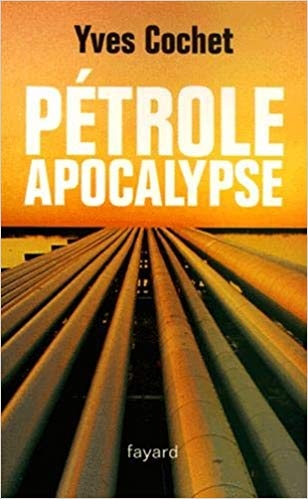 Si Yves Cochet oppose trois modèles : le productiviste, l’augustinien et le modèle discontinuiste qui « pourrait être compatible avec l’un et l’autre, puisqu’il se focalise surtout sur la forme de l’évolution du monde, et non sur sa substance (p. 55) », on remarque qu’il se réfère à un sermon de Saint-Augustin de décembre 410 qui aurait inspiré Oswald Spengler et le vitalisme civilisationnel… Suite aux travaux précurseurs de Nicholas Georgescu-Roegen et à la prise en compte de la non-linéarité des systèmes complexes, il distingue l’économie biophysique de l’économie écologique qui « tente d’évaluer le prix des services des écosystèmes en intégrant la finitude des ressources et la pollution dans le cadre de l’économie néo-classique (p. 73) ». À l’économie néo-classique, il propose l’« économie biophysique [qui] se concentre explicitement sur les relations de puissance, à la fois dans le sens physique d’énergie par unité de temps et dans le sens social de contrôle sur les autres (p. 71) ». À la jonction des sciences exactes et des sciences humaines, l’économie biophysique se base « sur les stocks et les flux de matière et d’énergie plutôt que sur les comportements individuels (les “ préférences des consommateurs ”). L’accent est mis sur la qualité de l’énergie, ainsi que sur la quantité d’énergie disponible (p. 71) ». Il parie que « l’économie biophysique, qui envisage un monde au climat déréglé et à l’énergie rare, est une meilleure base d’orientation pour la construction d’une société soutenable que les formes individualiste et croissanciste de la théorie économique néo-classique (p. 91) » parce que « plutôt que de prendre la rareté relative comme point de départ, [elle] se concentre sur le surplus économique et la pénurie absolue (p. 86) ».
Si Yves Cochet oppose trois modèles : le productiviste, l’augustinien et le modèle discontinuiste qui « pourrait être compatible avec l’un et l’autre, puisqu’il se focalise surtout sur la forme de l’évolution du monde, et non sur sa substance (p. 55) », on remarque qu’il se réfère à un sermon de Saint-Augustin de décembre 410 qui aurait inspiré Oswald Spengler et le vitalisme civilisationnel… Suite aux travaux précurseurs de Nicholas Georgescu-Roegen et à la prise en compte de la non-linéarité des systèmes complexes, il distingue l’économie biophysique de l’économie écologique qui « tente d’évaluer le prix des services des écosystèmes en intégrant la finitude des ressources et la pollution dans le cadre de l’économie néo-classique (p. 73) ». À l’économie néo-classique, il propose l’« économie biophysique [qui] se concentre explicitement sur les relations de puissance, à la fois dans le sens physique d’énergie par unité de temps et dans le sens social de contrôle sur les autres (p. 71) ». À la jonction des sciences exactes et des sciences humaines, l’économie biophysique se base « sur les stocks et les flux de matière et d’énergie plutôt que sur les comportements individuels (les “ préférences des consommateurs ”). L’accent est mis sur la qualité de l’énergie, ainsi que sur la quantité d’énergie disponible (p. 71) ». Il parie que « l’économie biophysique, qui envisage un monde au climat déréglé et à l’énergie rare, est une meilleure base d’orientation pour la construction d’une société soutenable que les formes individualiste et croissanciste de la théorie économique néo-classique (p. 91) » parce que « plutôt que de prendre la rareté relative comme point de départ, [elle] se concentre sur le surplus économique et la pénurie absolue (p. 86) ».
Soulignant que « notre démarche est holistique et systémique (p. 145) », Yves Cochet pense que la crise économique sera d’abord d’ordre énergétique à partir des années 2020 – 2030 ! Il assure en outre que « l’économie biophysique est une économie pour l’ère de la décroissance (p. 76) ». Il imagine d’une manière impressionniste et sans s’y attarder, un monde post-catastrophique qui rappelle l’avenir décrit dans La Route (2008) de Cormac McCarthy ou, moins pessimiste, dans Malevil (1972) de Robert Merle. Yves Cochet prévient toutefois ses contemporains qu’ils connaîtront dans les prochaines années un choc violent comparable aux désastres de la grande peste noire en Europe en 1348 – 1349 ! « Appelons “ effondrement ” de la société mondialisée contemporaine le processus à l’issue duquel les besoins de base (eau, alimentation, logement, habillement, énergie, mobilité, sécurité) ne seont plus satisfaits pour une majorité de la population par des services encadrés par la loi (pp. 29 – 30). » Il ajoute que « par effondrement, j’entends un phénomène qui, en matière démographique, verrait environ la moitié de la population mondiale disparaître en moins de dix ans (p. 12) ». L’auteur prévoit trois milliards de survivants sur Terre dont environ une trentaine de millions en France, un monde à mi-chemin entre Mad Max I (1979) et II (1982) et l’utopie libertaire chère aux anarchistes. Il tient des propos très proches de La convergence des catastrophes (2007) de Guillaume Corvus alias Guillaume Faye. En revanche, il ignore tout des écrits du philosophe suisse en stratégie Bernard Wicht ! C’est regrettable, car les ouvrages de ce Suisse pourraient lui apporter des solutions capables de supporter la période immédiate qui suivra l’effondrement.
L’ère des biorégions
En bon écologiste anti-étatiste et peut-être en lecteur de l’éco-communaliste Murray Bookchin, le président de l’Institut Momentum parie sur le dépérissement de l’État. Or, comme « les populations les moins “ développées ”, les plus habituées à une certaine rusticité dans leur vie courante, seront moins touchées par la chute de la civilisation thermo-industrielle, parce qu’elles dépendent moins, pour leur survie, de la mondialisation contemporaine et de toute sa quincaillerie technologique (p. 13) », il est probable que certains États actuellement soumis à des embargos internationaux s’en sortent mieux que les États occidentaux, car ils ont l’habitude de résister à la dureté du temps. Dans ces circonstances tragiques, il serait possible que ces États survivants – pensons à la Corée du Nord – deviennent les nouvelles puissances mondiales.

La vision de l’État chez Yves Cochet reste trop formaliste. L’État porte en lui une acception polysémique. Polis grecque, civitas romaine, féodalités médiévales, tous ces termes politiques désignent dans l’histoire européenne des communautés politiques inscrites dans un territoire déterminé après coup par l’histoire. Une tribu, voire un clan, est un État en devenir ou l’embryon d’une future structure étatique complexe, c’est néanmoins un ensemble communautaire politique. Il le devine sans vouloir vraiment l’admettre, lui qui dénonce la « topologie isotropique » du territoire républicain français, soit la centralisation excessive propice à l’homogénéisation des populations et à l’éradication des cultures vernaculaires.
Une fois l’effondrement survenu et les États modernes (les États-nations ?) disparus, « on assistera à la naissance d’une mosaïque de petites biorégions politiques, à l’image, peut-être, de ce qu’étaient les cités-États germaniques ou italiennes au XVIIIe siècle (p. 127) ». Yves Cochet intègre dans sa réflexion le concept bien méconnu en France de « biorégions ». La fin violente des États actuels favorisera en réaction la constitution d’entités bio-régionales, capables d’organiser auprès des populations survivantes l’apport essentiel d’énergie et de nourriture. Il y voit même une chance pour une certaine concorde sociale, car ces entités bio-régionales seraient plus égalitaires, plus homogènes d’un point de vue social, moins touchées par la lutte des classes. Moins spécialisées dans leurs tâches quotidiennes et a fortiori moins difficiles à diriger, elles pratiqueront selon l’auteur une différenciation géographique et non pas ethno-culturelle, ce qui reste à prouver. En Seine – Saint-Denis « ensauvagée » apparaîtront ici des émirats islamistes, là des caïdats afro-européens et des Gaylands ailleurs.
Ces biorégions développeraient un sens plus grand du partage au sein de leurs communautés respectives, mot qu’évite Yves Cochet alors que le communautarisme est bien une solution d’avenir. Il cite Marcel Mauss, Georges Bataille, le potlach et la dépense festive.
Violence et « spécularité »
Malgré des allusions à La notion de politique et au Nomos de la Terre de Carl Schmitt, l’auteur valorise surtout la coopération et sous-estime le conflit inhérent à tout groupe humain. Il s’appuie sur les travaux de Jean-Louis Vullierme sur l’« interaction spéculaire ». Ce concept « émerge nécessairement lorsque des individus se rencontrent et qui constitue simultanément leur être-au-monde par une boucle incessante entre l’individu et son environnement. L’être humain est tout à la fois modelé par le monde qui lui préexiste et modélisateur du monde par les actions qu’il entreprend. […] La spécularité concerne les entrecroisements des représentations du monde que chacun élabore progressivement dans l’intersubjectivité avec autrui. L’enfant (et l’adulte !), doté de cette faculté de modéliser le monde, apprend aussi bien à imiter les autres qu’à s’en distinguer. Il possède ainsi un ensemble de représentations du monde, et notamment une représentation de lui-même aux yeux des autres (les autres sont nos miroirs, ce qu’indique le qualificatif “ spéculaire ”) (p. 25) ».
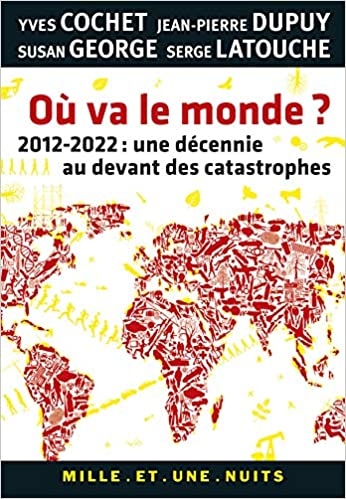 Yves Cochet évacue bien trop rapidement la violence humaine. La grève contre la réforme des retraites déclenchée le 5 décembre 2019 a déjà démontré la sauvagerie sous-jacente des Franciliens et des Parisiens qui essayaient de monter dans le seul train de banlieue ou dans l’unique rame de métro. Certains n’hésitèrent pas à se battre. Et ne parlons pas des rapports conflictuels en ville entre piétons, automobilistes, cyclistes, patineurs à roulettes et « trottinettistes ». Cette agressivité propre à la nature humaine, accentuée par la modernité tardive pourrait atteindre rapidement son paroxysme au moment de l’effondrement social. La vie en zone urbaine après la « Grande Déflagration » sera certainement plus difficile que dans la France périphérique déjà habituée aux privations. « Il faudra réapprendre à maîtriser une agro-écologie alimentaire, énergétique et productrice de fibres pour les vêtements, cordes et papiers, la production de matériaux de construction indigènes, voire la fabrication de quelques substances secondaires, mais utiles, telles que l’alcool, l’ammoniac, la soude, la chaux… Tous ces domaines étant équipés en outils low tech aptes à êtres fabriqués, entretenus et réparés par des ouvriers locaux (p. 118). » En pratique, on utilisera le bois de chauffage, le charbon de bois et les biogaz dont le méthane.
Yves Cochet évacue bien trop rapidement la violence humaine. La grève contre la réforme des retraites déclenchée le 5 décembre 2019 a déjà démontré la sauvagerie sous-jacente des Franciliens et des Parisiens qui essayaient de monter dans le seul train de banlieue ou dans l’unique rame de métro. Certains n’hésitèrent pas à se battre. Et ne parlons pas des rapports conflictuels en ville entre piétons, automobilistes, cyclistes, patineurs à roulettes et « trottinettistes ». Cette agressivité propre à la nature humaine, accentuée par la modernité tardive pourrait atteindre rapidement son paroxysme au moment de l’effondrement social. La vie en zone urbaine après la « Grande Déflagration » sera certainement plus difficile que dans la France périphérique déjà habituée aux privations. « Il faudra réapprendre à maîtriser une agro-écologie alimentaire, énergétique et productrice de fibres pour les vêtements, cordes et papiers, la production de matériaux de construction indigènes, voire la fabrication de quelques substances secondaires, mais utiles, telles que l’alcool, l’ammoniac, la soude, la chaux… Tous ces domaines étant équipés en outils low tech aptes à êtres fabriqués, entretenus et réparés par des ouvriers locaux (p. 118). » En pratique, on utilisera le bois de chauffage, le charbon de bois et les biogaz dont le méthane.
Terminés Facebook, Twitter et ces saloperies de réseaux sociaux. Faute d’électricité et/ou de câbles entretenus, plus d’Internet. La nouvelle de George R. R. Martin, «… Pour revivre un instant » (1972), dans Des astres et des ombres (1977) anticipe le monde d’après vu par Yves Cochet. Quant aux déplacements, « les moyens de mobilité du futur sont plutôt à envisager du côté de la marche à pied, de la bicyclette et de la traction animale, de la voile et des embarcations à rames (p. 143) ». En lisant cet essai, le lecteur devrait avoir la curiosité de s’intéresser à la vie quotidienne des Français sous l’Occupation ainsi qu’à la Corée du Nord. L’auteur espère que « les habitants de France expérimenteront bientôt sous la forme d’une alimentation plus végétale, plus locale, plus saisonnière, grâce à la multiplication des jardins en permaculture et des paysages comestibles (p. 138) ».
Dans un contexte chaotique, « au milieu du [XXIe] siècle, mille formes d’organisations politiques locales nouvelles et différentes émergeront de la barbarie, révolue dans la plupart des sous-continents. En France, chaque bio-région sera munie d’un micro-État simple. Nous entendons par là qu’une communauté humaine autonome, c’est-à-dire un niveau d’organisation territoriale qui ne sera subordonné à aucun autre qui lui soit supérieur, se sera formée autour des trois valeurs républicaines précitées – en fait, surtout la fraternité – et aura institué une “ assemblée ” et un “ gouvernement ”, lequel détiendra le monopole de la violence physique légitime (p. 127, souligné par l’auteur) ». Yves Cochet invite à la rotation civique de la police et de l’armée : chacun occuperait à tour de rôle pour un temps précis des fonctions policières et militaires, d’où l’importance de connaître l’œuvre de Bernard Wicht. Cette proposition rejoint en partie certaines thèses libertariennes.
Yves Cochet a vu ses prévisions contredites par les faits. Le peak oil n’arrive pas. On peut penser que son catastrophisme est exagéré. Devant l’effondrement insiste pourtant sur la réalisation de bases autonomes durables (BAD) tout en gardant à l’esprit que l’éclatement territorial envisagé des États modernes signifiera aussi un regain de puissance chez des voisins moins sévèrement frappés. Dans les ruines du monde moderne rejailliront alors les enjeux tragiques du politique et de l’histoire.
Georges Feltin-Tracol
• Yves Cochet, Devant l’effondrement. Essai de collapsologie, Les Liens qui Libèrent, 2019, 252 p., 18,50 €.







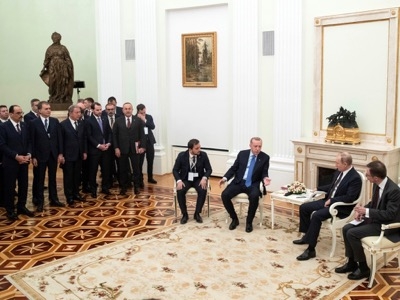

 del.icio.us
del.icio.us
 Digg
Digg

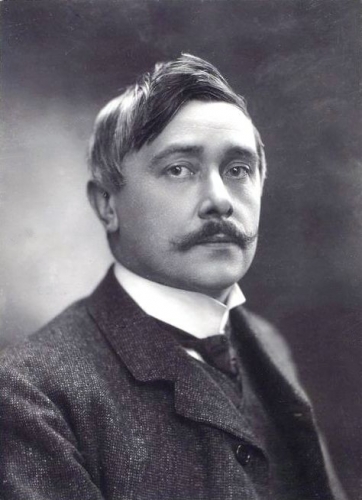 La fourmilière est peuplée par des reines, des femelles fécondées, vivant une douzaine d’années, d’innombrables cohortes d’ouvriers (ou ouvrières ) asexués vivant trois ou quatre ans et de quelques centaines de mâles qui disparaissent au bout de cinq à six semaines. Dans une fourmilière peuvent cohabiter plusieurs colonies avec plusieurs reines et même parfois différentes espèces en plus ou moins bonne harmonie. La fourmilière héberge aussi une quantité de parasites, l’auteur écrit qu’on en comptait, au moment de la rédaction de son ouvrage, « plus de deux milles espèces, et d’incessantes découvertes accroissent journellement ce nombre ». Je n’ai pas eu la curiosité de vérifier cette donnée auprès d’autres sources, la vie et l’histoire de ce monde en miniature sont pourtant fascinantes et permettent de formuler moult élucubrations plus ou moins fantaisistes mais, pour certaines, tout à fait plausibles. L’auteur s’est penché sur cette vie grouillante et pourtant très organisée qui peut évoquer l’humanité à une échelle réduite et peut-être même dotée d’une intelligence au moins comparable. C’est là un vaste champ d’investigation, de réflexion, d’imagination et de recherche qui ne sera sans doute jamais exploré jusqu’à ses ultimes limites.
La fourmilière est peuplée par des reines, des femelles fécondées, vivant une douzaine d’années, d’innombrables cohortes d’ouvriers (ou ouvrières ) asexués vivant trois ou quatre ans et de quelques centaines de mâles qui disparaissent au bout de cinq à six semaines. Dans une fourmilière peuvent cohabiter plusieurs colonies avec plusieurs reines et même parfois différentes espèces en plus ou moins bonne harmonie. La fourmilière héberge aussi une quantité de parasites, l’auteur écrit qu’on en comptait, au moment de la rédaction de son ouvrage, « plus de deux milles espèces, et d’incessantes découvertes accroissent journellement ce nombre ». Je n’ai pas eu la curiosité de vérifier cette donnée auprès d’autres sources, la vie et l’histoire de ce monde en miniature sont pourtant fascinantes et permettent de formuler moult élucubrations plus ou moins fantaisistes mais, pour certaines, tout à fait plausibles. L’auteur s’est penché sur cette vie grouillante et pourtant très organisée qui peut évoquer l’humanité à une échelle réduite et peut-être même dotée d’une intelligence au moins comparable. C’est là un vaste champ d’investigation, de réflexion, d’imagination et de recherche qui ne sera sans doute jamais exploré jusqu’à ses ultimes limites.
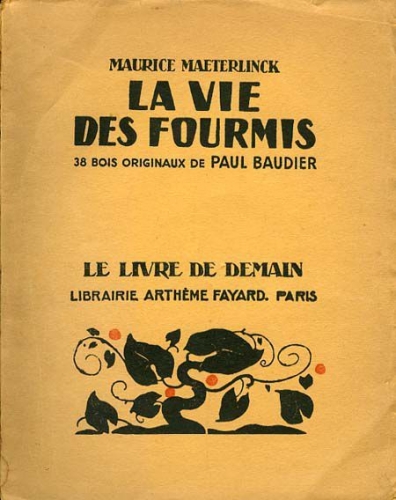




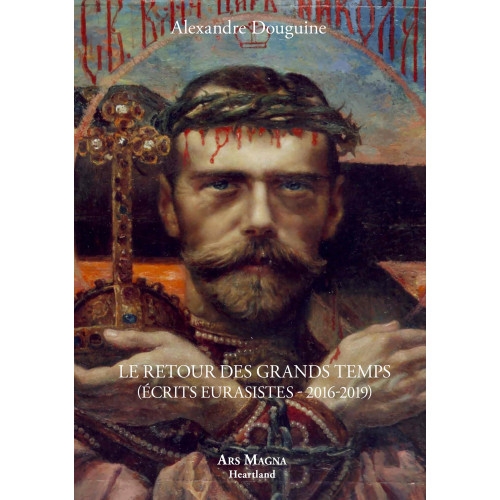


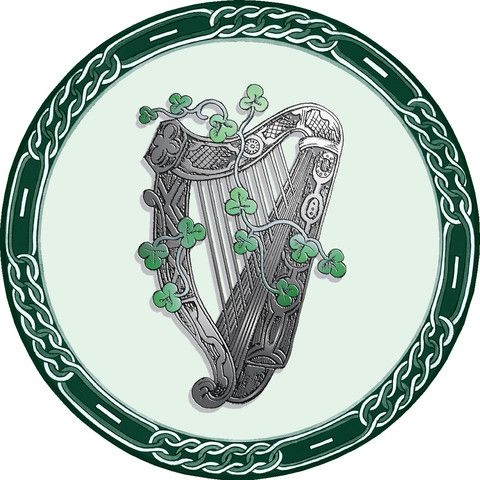
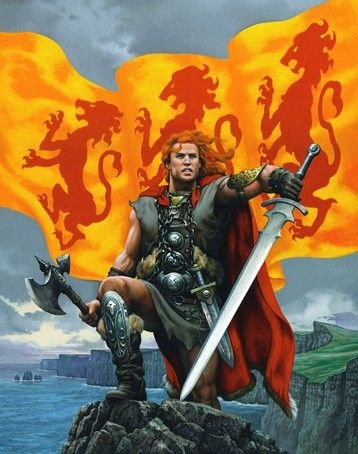
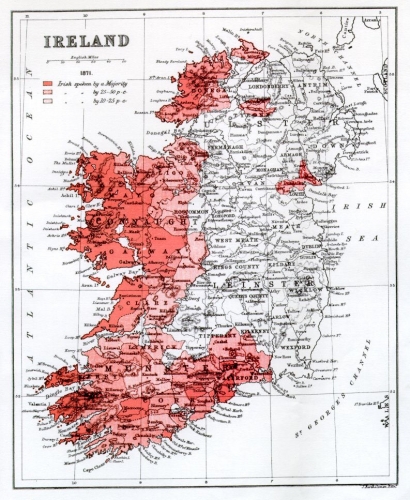

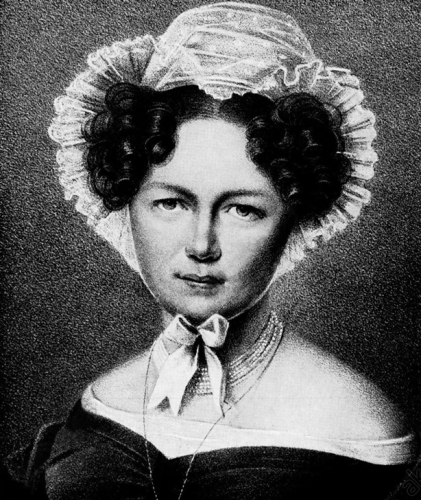
 La visione politica dei due è molto simile ed emerge costantemente nelle lettere. Il libro ne segue le tracce nel quadro di quegli anni burrascosi che fu l’inizio dell’800 con le guerre napoleoniche la disfatta di Jena (14 ottobre 1806), la sconfitta e l’umiliazione prussiana che scossero gli animi della coppia (che in quel periodo non era ancora sposata, il matrimonio venne celebrato il 17 dicembre 1810 a Berlino presso la Marienkirche visitabile ancora oggi in pieno centro). Questo permette all’autrice di ricostruire in modo preciso le vicende della Prussia, e in genere dell’Europa di quegli anni, inserendovi quindi la maturazione delle idee politico-strategiche di Clausewitz oltre che ovviamente le vicende amorose dei due.
La visione politica dei due è molto simile ed emerge costantemente nelle lettere. Il libro ne segue le tracce nel quadro di quegli anni burrascosi che fu l’inizio dell’800 con le guerre napoleoniche la disfatta di Jena (14 ottobre 1806), la sconfitta e l’umiliazione prussiana che scossero gli animi della coppia (che in quel periodo non era ancora sposata, il matrimonio venne celebrato il 17 dicembre 1810 a Berlino presso la Marienkirche visitabile ancora oggi in pieno centro). Questo permette all’autrice di ricostruire in modo preciso le vicende della Prussia, e in genere dell’Europa di quegli anni, inserendovi quindi la maturazione delle idee politico-strategiche di Clausewitz oltre che ovviamente le vicende amorose dei due.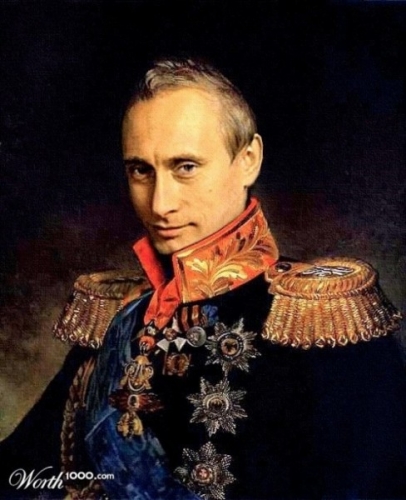
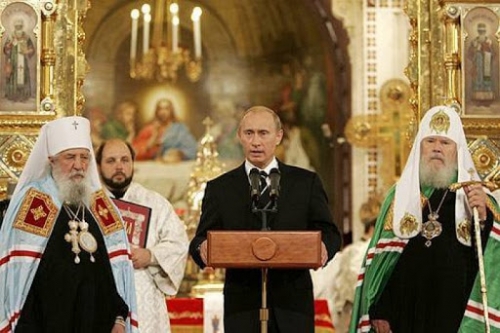


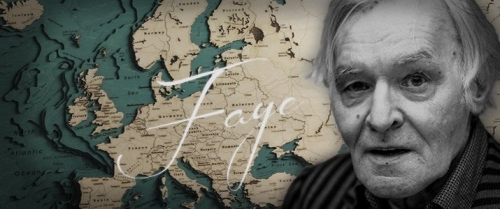

 Tiene un tufillo a “nueva derecha” francesa, claro, porque el autor ha pertenecido a tal grupo, aunque termine renegando de tal movimiento. Más reniega aún de la izquierda, a la que considera impotente para hacer frente al capitalismo y acusa de convertirse en una clase aburguesada que no defiende a los más necesitados, sino a una clase media trabajadora asalariada y una serie de valores igualitarios (feminismo, inmigrantes, homosexuales,…) que nos llevan al desastre. Aunque con aires políticos más que filosóficos, veo en Faye un digno heredero del martillo nietzscheano. Se dan los mismos elementos que ya supieron ver Nietzsche o Spengler o los pensadores clásicos que no caminaron con una venda en los ojos. Políticos y filósofos tratan sobre ideas sociales, pero los primeros poco saben de pensar y sí mucho de demagogia; los políticos hablan para su tiempo, los filósofos se preocupan de temas perennes. En ese sentido, bueno es que algunos pensadores políticos se acerquen al pensamiento intempestivo de la filosofía, aunque sea en su estilo, antes que preocuparse por ocupar unos sillones en un congreso.
Tiene un tufillo a “nueva derecha” francesa, claro, porque el autor ha pertenecido a tal grupo, aunque termine renegando de tal movimiento. Más reniega aún de la izquierda, a la que considera impotente para hacer frente al capitalismo y acusa de convertirse en una clase aburguesada que no defiende a los más necesitados, sino a una clase media trabajadora asalariada y una serie de valores igualitarios (feminismo, inmigrantes, homosexuales,…) que nos llevan al desastre. Aunque con aires políticos más que filosóficos, veo en Faye un digno heredero del martillo nietzscheano. Se dan los mismos elementos que ya supieron ver Nietzsche o Spengler o los pensadores clásicos que no caminaron con una venda en los ojos. Políticos y filósofos tratan sobre ideas sociales, pero los primeros poco saben de pensar y sí mucho de demagogia; los políticos hablan para su tiempo, los filósofos se preocupan de temas perennes. En ese sentido, bueno es que algunos pensadores políticos se acerquen al pensamiento intempestivo de la filosofía, aunque sea en su estilo, antes que preocuparse por ocupar unos sillones en un congreso.





 Faut-il, comme le dit Emmanuel Macron, ne pas stigmatiser l’islam?
Faut-il, comme le dit Emmanuel Macron, ne pas stigmatiser l’islam?





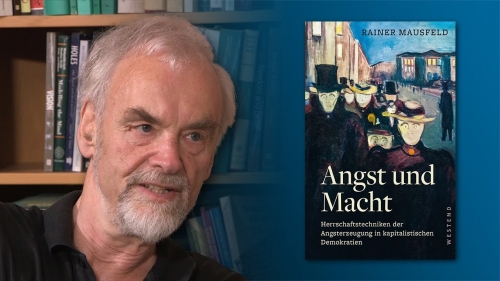



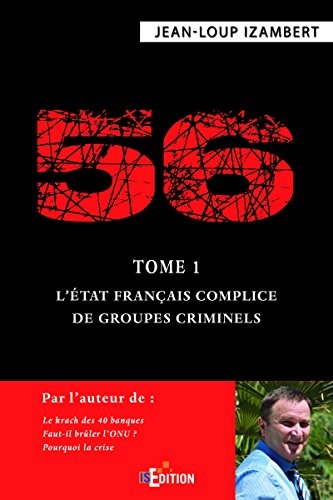 On peut également citer Jean-Loup Izambert, avec ses reportages incomparables et ses livres minutieusement documentés, comme « 56 », Tome 1, l’État français complice de groupes criminels ; Tome 2, Mensonges et crimes d’État…. Crimes sans châtiment… etc. On peut encore renvoyer le lecteur intéressé par la qualité et l’objectivité journalistique sur ce type de sujets, à Paul Moreira qui a traité la question de l’Ukraine et les crimes impardonnables de l’Occident.
On peut également citer Jean-Loup Izambert, avec ses reportages incomparables et ses livres minutieusement documentés, comme « 56 », Tome 1, l’État français complice de groupes criminels ; Tome 2, Mensonges et crimes d’État…. Crimes sans châtiment… etc. On peut encore renvoyer le lecteur intéressé par la qualité et l’objectivité journalistique sur ce type de sujets, à Paul Moreira qui a traité la question de l’Ukraine et les crimes impardonnables de l’Occident. A les entendre, il semblerait que oui ! Il semblerait que ce fut le cas de François Mitterrand théoriquement socialiste, de François Hollande théoriquement socialiste, d’Alexis Tsipras théoriquement de gauche. On se rappelle de la description faite par Tsipras évoquant le couteau sous la gorge tenu par les Allemands alors que Hollande se faisait collaborateur docile aux ordres de Merkel.
A les entendre, il semblerait que oui ! Il semblerait que ce fut le cas de François Mitterrand théoriquement socialiste, de François Hollande théoriquement socialiste, d’Alexis Tsipras théoriquement de gauche. On se rappelle de la description faite par Tsipras évoquant le couteau sous la gorge tenu par les Allemands alors que Hollande se faisait collaborateur docile aux ordres de Merkel.

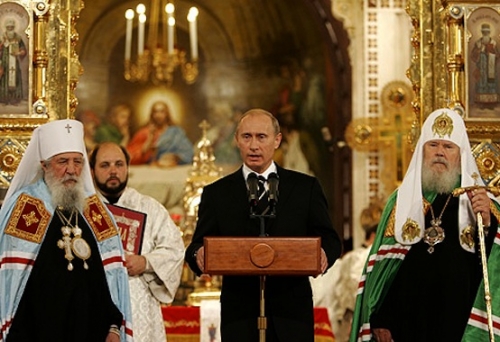

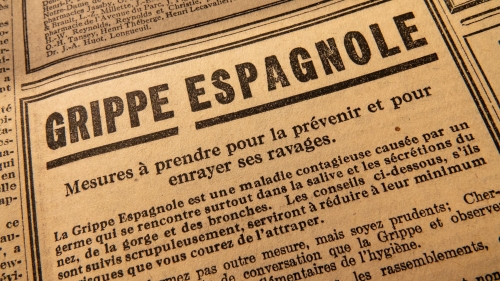
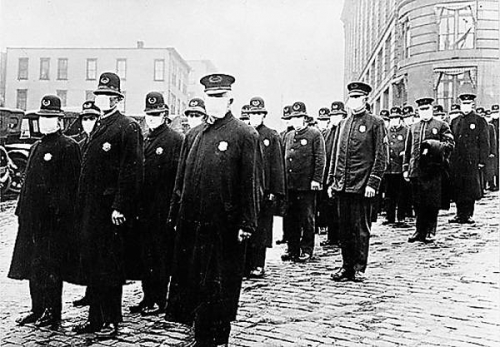

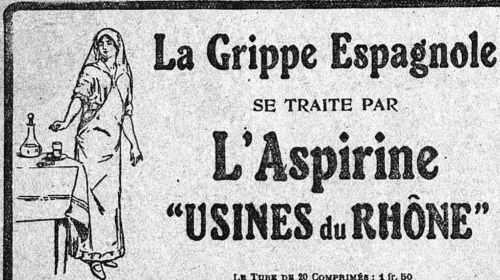


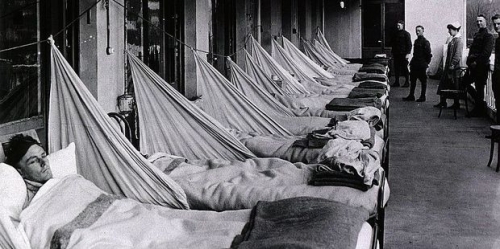
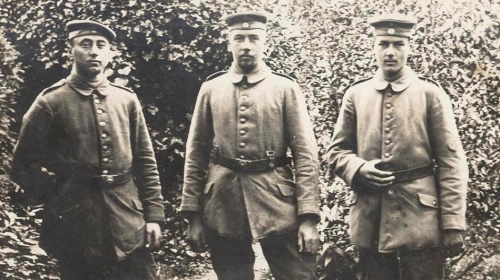
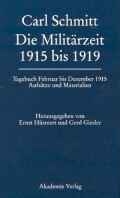 Der Nachlass Carl Schmitts ist eine reiche Quelle. Fast wundert es aber, dass er so reichlich sprudelt. Denn seine Edition wurde nicht generalstabsmäßig geplant. Das lag auch an Schmitt selbst. Zwar entwickelte der zahlreiche interpretative Strategien im Umgang mit seiner Rolle und seinem Werk. Anders als etwa Heidegger organisierte er aber seine posthume Überlieferung nicht im großen Stil. Er betrieb keine Fusion von Nachlassinterpretationspolitik und Nachlasseditionspolitik, bei der interpretative Strategien kommenden Editionen vorarbeiteten. Initiativen zu einer großen Werkausgabe scheiterten deshalb auch nach Schmitts Tod. Damals wurde eine Chance vertan, denn personell und institutionell haben sich die Bedingungen nicht verbessert. Schmitts letzte Schülergeneration, die „dritte“ Generation bundesdeutscher Schüler (Böckenförde, Schnur, Quaritsch, Koselleck etc.), tritt ab und den Institutionen geht das Geld aus. Heute ist keine historisch-kritische Gesamtausgabe in Sicht. Die Zukunft ist solchen Projekten auch nicht rosig. Das gerade erschienene Berliner „Manifest Geisteswissenschaften“ etwa, ein revolutionäres Dokument der „Beschleunigung wider Willen“, plädiert für eine Überführung akademischer Langzeitvorhaben in „selbständige Editionsinstitute“.
Der Nachlass Carl Schmitts ist eine reiche Quelle. Fast wundert es aber, dass er so reichlich sprudelt. Denn seine Edition wurde nicht generalstabsmäßig geplant. Das lag auch an Schmitt selbst. Zwar entwickelte der zahlreiche interpretative Strategien im Umgang mit seiner Rolle und seinem Werk. Anders als etwa Heidegger organisierte er aber seine posthume Überlieferung nicht im großen Stil. Er betrieb keine Fusion von Nachlassinterpretationspolitik und Nachlasseditionspolitik, bei der interpretative Strategien kommenden Editionen vorarbeiteten. Initiativen zu einer großen Werkausgabe scheiterten deshalb auch nach Schmitts Tod. Damals wurde eine Chance vertan, denn personell und institutionell haben sich die Bedingungen nicht verbessert. Schmitts letzte Schülergeneration, die „dritte“ Generation bundesdeutscher Schüler (Böckenförde, Schnur, Quaritsch, Koselleck etc.), tritt ab und den Institutionen geht das Geld aus. Heute ist keine historisch-kritische Gesamtausgabe in Sicht. Die Zukunft ist solchen Projekten auch nicht rosig. Das gerade erschienene Berliner „Manifest Geisteswissenschaften“ etwa, ein revolutionäres Dokument der „Beschleunigung wider Willen“, plädiert für eine Überführung akademischer Langzeitvorhaben in „selbständige Editionsinstitute“.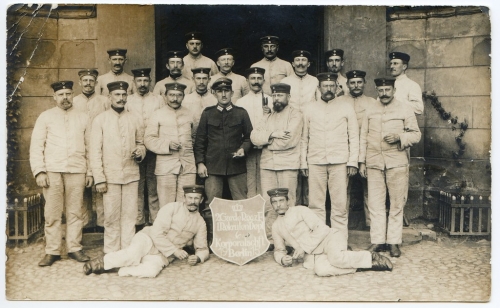
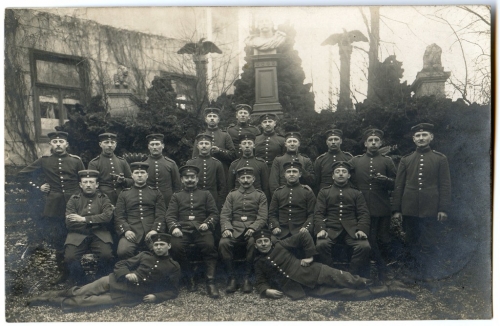






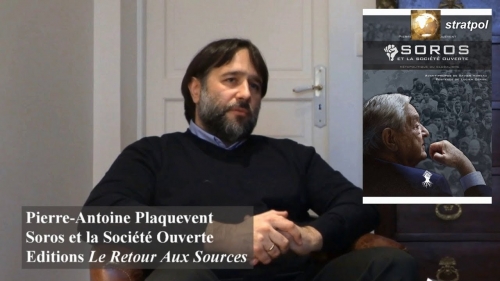
 Breizh-info.com :
Breizh-info.com : 
 Pierre-Antoine Plaquevent : Shahin Vallée travaille depuis 2015 pour le Soros Fund Management sur les questions économiques et monétaires dans la zone euro. Shahin Vallée (dont le nom et le parcours rappellent un peu le « Mustapha Meunier » du livre Le Meilleur des Mondes d’Aldous Huxley) fût conseiller économique d’Herman Van Rompuy puis celui d’Emmanuel Macron quand celui-ci était ministre de l’Économie. « Homme pressé » aux multiples activités, Shahin Vallée fût aussi conseiller d’Europe Écologie les Verts. Comme George Soros avant lui, il est un élève de la London School of Economics, cette pouponnière de l’élite de l’anglosphère qui fût fondée en 1895 par plusieurs membres de la célèbre Société fabienne (Fabian Society). Shahin Vallée fût celui par qui le contact entre LREM et le Mouvement 5 étoiles continuait de se maintenir lors des tractations entre la Lega de Matteo Salvini et le M5s en 2018. Le but de la stratégie Macron-Shahin était alors de ne pas se couper des éléments européistes et globalistes du M5s. Cette stratégie s’avérera payante puisque le M5s bloquera systématiquement les actions de Salvini poussant ce dernier à faire exploser la coalition alors au pouvoir afin d’obtenir des élections en août dernier. Action qui s’est soldée par l’échec du pari de Salvini et par la constitution d’un gouvernement Parti Démocrate / Mouvement 5 Étoiles comme le souhaitaient le couple Macron / Shahin Vallée.
Pierre-Antoine Plaquevent : Shahin Vallée travaille depuis 2015 pour le Soros Fund Management sur les questions économiques et monétaires dans la zone euro. Shahin Vallée (dont le nom et le parcours rappellent un peu le « Mustapha Meunier » du livre Le Meilleur des Mondes d’Aldous Huxley) fût conseiller économique d’Herman Van Rompuy puis celui d’Emmanuel Macron quand celui-ci était ministre de l’Économie. « Homme pressé » aux multiples activités, Shahin Vallée fût aussi conseiller d’Europe Écologie les Verts. Comme George Soros avant lui, il est un élève de la London School of Economics, cette pouponnière de l’élite de l’anglosphère qui fût fondée en 1895 par plusieurs membres de la célèbre Société fabienne (Fabian Society). Shahin Vallée fût celui par qui le contact entre LREM et le Mouvement 5 étoiles continuait de se maintenir lors des tractations entre la Lega de Matteo Salvini et le M5s en 2018. Le but de la stratégie Macron-Shahin était alors de ne pas se couper des éléments européistes et globalistes du M5s. Cette stratégie s’avérera payante puisque le M5s bloquera systématiquement les actions de Salvini poussant ce dernier à faire exploser la coalition alors au pouvoir afin d’obtenir des élections en août dernier. Action qui s’est soldée par l’échec du pari de Salvini et par la constitution d’un gouvernement Parti Démocrate / Mouvement 5 Étoiles comme le souhaitaient le couple Macron / Shahin Vallée.
 Autre terrain d’influence majeure : la justice. Au travers de l’Open Society Justice Initiative (OSJI), les réseaux Soros fournissent un appui financier à de nombreuses initiatives d’ingérence dans le système judiciaire français. Par exemple dans le financement d’études sur les contrôles de police au faciès. Ainsi le programme « Profiling Minorities. A Study of Stop-and-Search Practices in Paris » réalisé en 2009 avec le soutien du CNRS. Il s’agit comme toujours d’utiliser des cas d’abus de pouvoir ou d’arbitraire policier afin de s’immiscer au sein des institutions d’un État et d’y faire de l’ingérence.
Autre terrain d’influence majeure : la justice. Au travers de l’Open Society Justice Initiative (OSJI), les réseaux Soros fournissent un appui financier à de nombreuses initiatives d’ingérence dans le système judiciaire français. Par exemple dans le financement d’études sur les contrôles de police au faciès. Ainsi le programme « Profiling Minorities. A Study of Stop-and-Search Practices in Paris » réalisé en 2009 avec le soutien du CNRS. Il s’agit comme toujours d’utiliser des cas d’abus de pouvoir ou d’arbitraire policier afin de s’immiscer au sein des institutions d’un État et d’y faire de l’ingérence. 
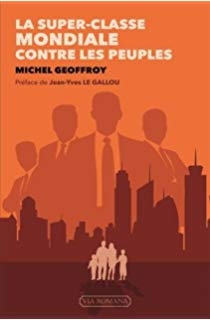 Pierre-Antoine Plaquevent : Je ne crois pas, je pense plutôt que l’étude des réseaux, de l’action et de la pensée d’un George Soros est en fait un point d’entrée dans ce monde opaque et très fermé que Michel Geoffroy appelle «
Pierre-Antoine Plaquevent : Je ne crois pas, je pense plutôt que l’étude des réseaux, de l’action et de la pensée d’un George Soros est en fait un point d’entrée dans ce monde opaque et très fermé que Michel Geoffroy appelle « 
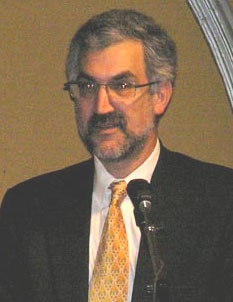 Cette ligne de fracture traverse tout l’Occident contemporain et voit se confronter juifs de gauche internationalistes, cosmopolites et sorosiens face aux juifs de droite conservateurs et sionistes. Dans un article au titre explicite («
Cette ligne de fracture traverse tout l’Occident contemporain et voit se confronter juifs de gauche internationalistes, cosmopolites et sorosiens face aux juifs de droite conservateurs et sionistes. Dans un article au titre explicite (« 